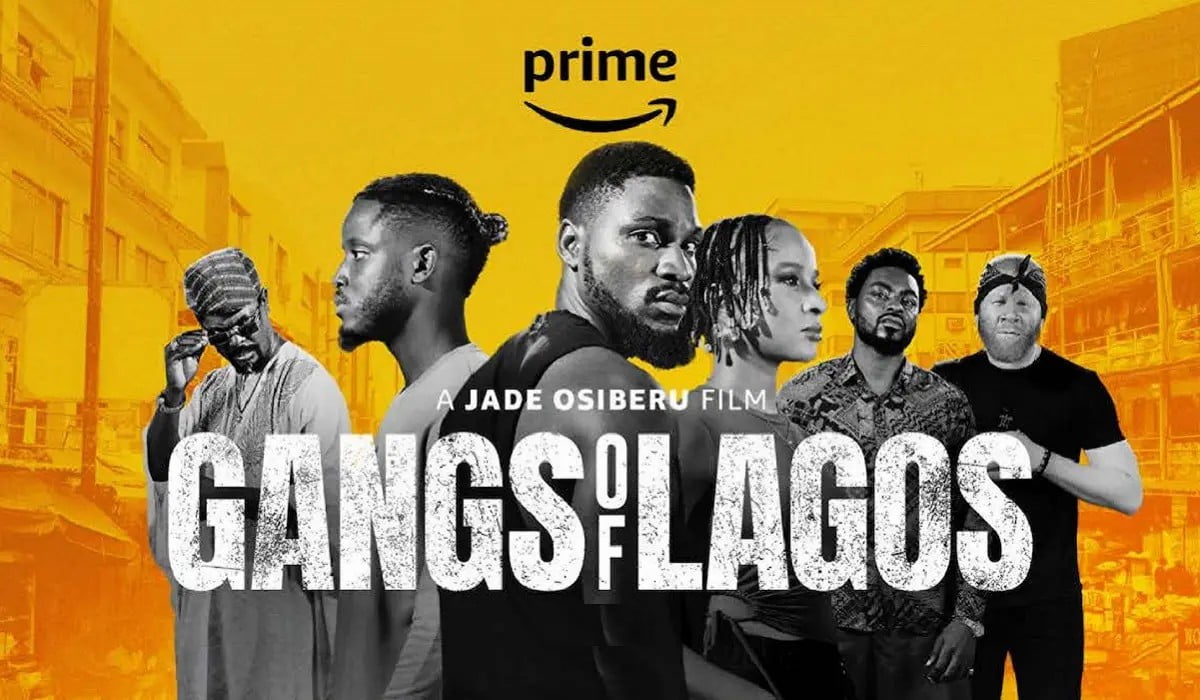By Philomena Ene Ekoja Â
“Gangs of Lagos†is one of Nollywood’s 2023 releases that has managed to capture the hearts of many viewers from its creativity to the storyline, given the recent Nigeria 2023 presidential and gubernatorial elections and all that happened. It gives us an idea about Nigerian politics and how dirty it can be, although no Nigerian is naïve about the ugliness of Nigerian politics.
Gangs of Lagos is a story of three best friends, Obalola, Iffy and Gift, who grew up in Isale Eko, a densely populated, less prosperous section of the sprawling Lagos Island – the commercial nerve of Nigeria. Isale Eko is described in the movie as a jungle where people do whatever it takes – legal or illegal, but mostly illegal – to survive.
Obalola (Tobi Bakre) endured a rough childhood and, like other Isale Eko-raised young people, navigated the complicated daily life of his neighbourhood. His life changed when he met Nino, who got interested in him for how courageous and smart he was for a child his age.
A gang leader himself, Nino was assassinated, thereby leaving Obalola and his two friends at the mercy of Kazeem, an ambitious gang leader and butcher of both livestock and humans, depending on the nature of the job at hand.
After sending his own daughter off to university in the United States, Kareem puts Obalola, Iffy (Chike Osebuka) and Gift (Adesua Etomi-Wellington) to use in his protection racket, squeezing payments from the disdainful local market women and sending them after perceived enemies of his godfather.
Obalola started to see Kazeem for whom he was after his friend Iffy was killed and he thought another gang was responsible until Ekun (one of late Nino’s boys) told him everything about Kazeem and how he was responsible for the death of his and his two friends’ fathers.
While Gangs of Lagos raised the bar in many aspects of cinematography in Nollywood, its storyline was a bit too predictable and it had some flaws, such as when Obalola was fighting with Kash and he dropped the rod he was holding then magically the rod was back on his hand again. Also, the injuries Obalola and Teni (Kazeem’s daughter) sustained when they were attacked on their way home after shopping was exaggerated, for an attack where nobody was shot.
The transitioning in the movie, especially of the three friends from children to young adults, was excellent and the kids delivered their roles near-perfectly. However, Adesua could have passed for older Teni, while Bimbo for older Gift. This slight flaw became evident when a younger Gift spoke Yoruba more fluently than Adesua’s character later in the movie.
Chioma Chukwuka, who acted as Mama Iffy, played her role excellently as a real Nigerian mother. In the church scene where she was giving her speech and she went from crying for losing her son to calling down the wrath of God on all those involved in her son’s death was particularly well-delivered.
Given how the themes of corruption, ghetto life, and political thuggery were portrayed, the performances of the cast, the cinematography and the locations, Gangs of Lagos is a step in the right direction for Nollywood, even when there is always room for improvement.
